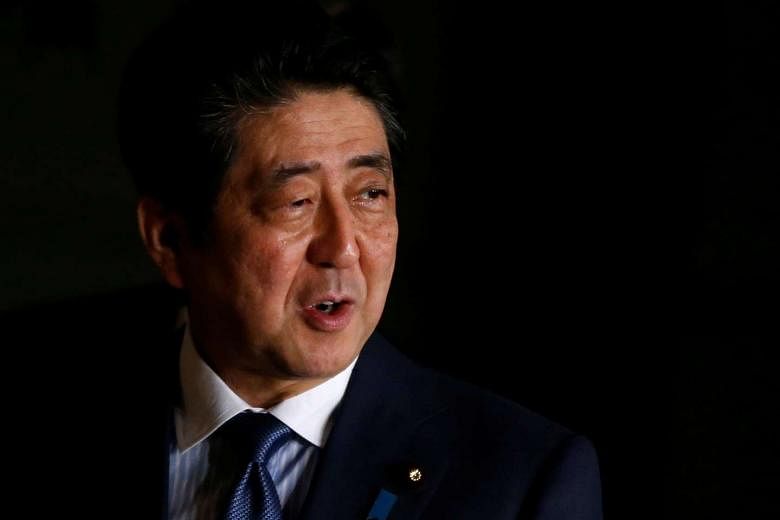TOKYO (REUTERS) - Japanese Prime Minister Shinzo Abe, now in a rare fifth year as leader, is battling scandals on two separate fronts as questions swirl about his ties to a nationalist school involved in a murky land deal and his defence minister faces calls to resign.
The scandals, which analysts say present the most serious crisis for Abe since he returned to office in 2012, appear likely to further erode his support rates, now about 50 per cent.
They are also denting his image as an invincible leader with a shot at becoming Japan's longest-serving premier, although so far most political experts are betting he can survive.
"I think his dream of a super-long administration is beginning to crumble," said Minoru Morita, an independent political analyst.
Abe's term as ruling Liberal Democratic Party president ends in 2018 but a rule change means he can run for a third three-year term, allowing him to remain premier as long as the LDP stays in power.
The furore is distracting the government at a time when Japan needs to focus on economic talks with US President Donald Trump's administration and domestic issues including structural reforms to generate growth.
In the latest twist to the ballooning school scandal, Japan's top spokesman said on Friday (March 17) that Abe's wife, Akie, had not personally donated money to Moritomo Gakuen, a school operator in Osaka, western Japan.
Chief Cabinet Secretary Yoshihide Suga had said on Thursday Abe had not donated money either himself or through a third party including his wife.
The comments came after opposition lawmakers said the school principal, Yasunori Kagoike, told them Akie had donated 1 million yen (S$12,374) in 2015. Akie had been set to become honorary head of the school but cut her ties after the scandal broke.
Kagoike, a member of nationalist lobby group Nippon Kaigi, which has close ties to Abe and his Cabinet, is to testify in parliament on Thursday.
"Unless the opposition handles this poorly ... Abe has a lot to lose, potentially," said Sophia University political science professor Koichi Nakano. "It has been because of a lack of alternatives that Abe was able to survive, but people are starting to wonder if he is invincible."
Abe has denied he or Akie intervened in a murky land deal by the operator of the school, whose curriculum includes prewar-style patriotic education, or helped it get accredited. He has said he would resign if evidence to the contrary were found.
ABE PROTEGE'S WOES
Abe is also suffering from a separate affair plaguing his defence minister, Tomomi Inada, whom some had tipped as a future premier and who is Abe's political protege.
Inada on Thursday launched a special investigation after media reports defence officials tried to hide logs showing a worsening security situation in South Sudan, where Japanese troops are taking part in a UN-led peace-keeping operation.
The government announced last week that Japanese troops would end their controversial mission around the end of May, but denied that security conditions affected that decision.
Opposition lawmakers have stepped up their calls for Inada to resign. They had already targeted her after she had to correct a comment about her links to Moritomo Gakuen.
Suga said he wanted Inada to carry out the probe quickly. "If the reports are true, then public trust in the defence ministry and the Self-Defence Force will be greatly damaged," Suga said, using the Japanese name for its military.
Abe, 62, abruptly quit in 2007 after a year in office plagued by scandals in his Cabinet, a devastating election loss and ill health.

